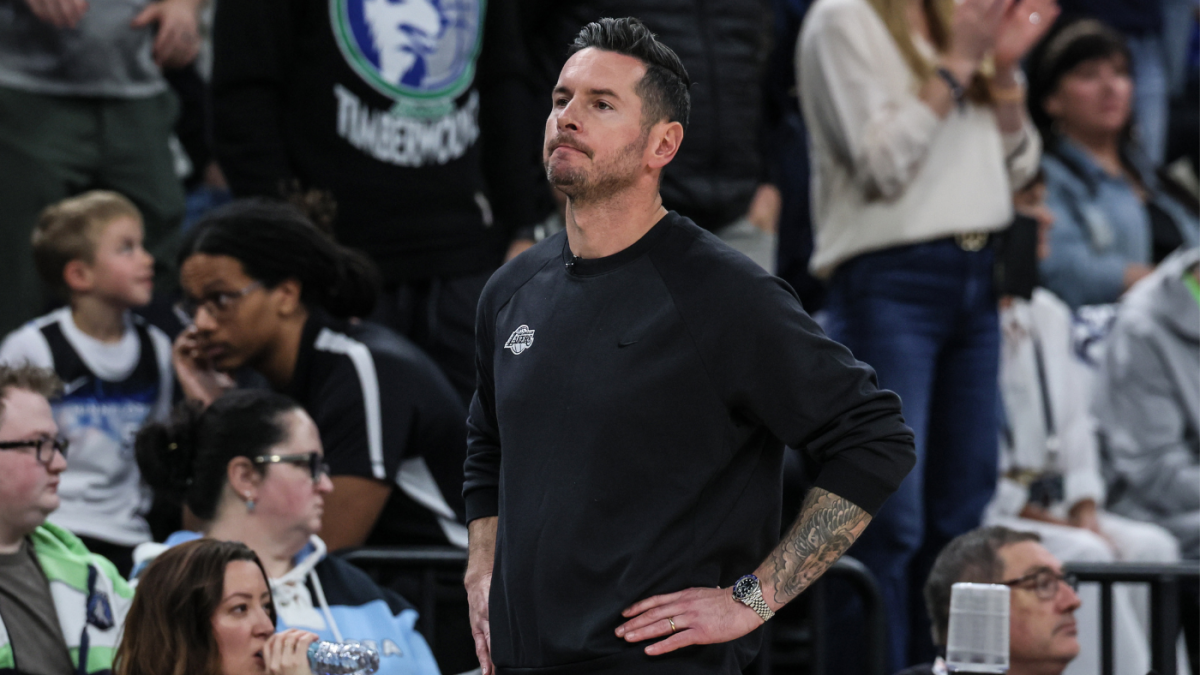“`markdown
The Pressure Cooker of Professional Sports: Analyzing JJ Redick’s Press Conference Exit
The world of professional basketball is a pressure cooker where emotions, strategy, and public perception collide. Few moments capture this tension as vividly as Los Angeles Lakers head coach JJ Redick’s abrupt exit from a pregame press conference before Game 5 against the Minnesota Timberwolves. The incident, dissected across sports media, reveals layers of coaching psychology, media dynamics, and the high-wire act of leadership in the NBA spotlight.
The Trigger: A Question That Crossed the Line
Redick’s explosion wasn’t spontaneous. It stemmed from a reporter’s pointed inquiry about his lineup decisions in Game 4, specifically his choice to play the same five players for the entire second half. The phrasing—whether intentional or not—implied incompetence: *Was this an inexperienced move?* For Redick, a rookie head coach with a 50-32 regular-season record, the question struck a nerve. His retort was swift and defensive: *”You think I don’t talk to my assistants? You think I don’t know what I’m doing?”* The subtext was clear: the challenge wasn’t just about strategy but his legitimacy as a leader.
The Context: A Rookie Coach in the Playoffs Crucible
Redick’s transition from NBA sharpshooter to podcast analyst to Lakers coach has been meteoric—and fraught with scrutiny. The Lakers’ No. 3 seed in the West masked underlying tensions: a fanbase with championship-or-bust expectations, a locker room of veterans, and a media corps hungry for drama. Playoffs amplify every flaw, and Game 4’s loss turned Redick’s rotations into a lightning rod. His reaction wasn’t just about one question; it was the cumulative weight of proving himself in a role where every move is second-guessed.
The Fallout: Divided Reactions
The aftermath split observers into two camps:
– Team Redick: Supporters argued his passion reflected investment—a coach unwilling to let his decisions be trivialized. Former players like Richard Jefferson tweeted, *”Coaches aren’t robots. Sometimes they snap.”*
– Critics: Detractors called it a rookie mistake, citing legends like Gregg Popovich, who weaponize sarcasm rather than storm off. ESPN’s Stephen A. Smith quipped, *”You can’t let the media see you sweat.”*
The Lakers’ performance in Game 5 would become the ultimate rebuttal. A win could frame Redick’s fire as motivational; a loss might cement narratives about his volatility.
The Bigger Issue: Media vs. Coaches in the Digital Age
Redick’s outburst underscores a modern dilemma: coaches navigate a 24/7 news cycle where press conferences are dissected for viral moments. The reporter’s question—fair or loaded—was inevitable in an era that prioritizes hot takes over nuance. Coaches now walk a tightrope: engage transparently or risk seeming evasive. Redick chose confrontation, but the cost was ceding control of the storyline.
Leadership Under Fire: What’s Next for Redick?
For Redick, the incident is a pivotal test. History offers parallels:
– Doc Rivers’ 2008 Celtics: Early criticism of his adjustments melted away with a title.
– Steve Kerr’s 2014 Warriors: His unproven status was erased by a revolutionary system.
Redick’s path hinges on adaptability. Can he channel this moment into sharper communication, or will it fracture trust? The Lakers’ locker room response—whether players rally behind his passion or bristle at the distraction—will reveal more than any press conference.
Conclusion: Passion Isn’t Enough
Redick’s press conference exit was human but hazardous. In professional sports, credibility is earned not just through wins but poise. The greatest coaches—Phil Jackson, Pat Riley—mastered the art of deflection, using media scrutiny to their advantage. Redick’s challenge now is to transform raw emotion into strategic composure. As the Lakers chase a title, the lesson is clear: storms make headlines, but calm wins championships.
“`











